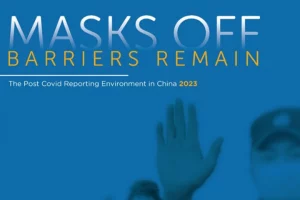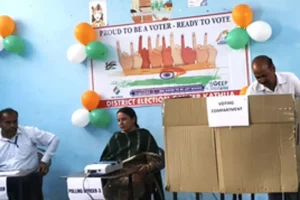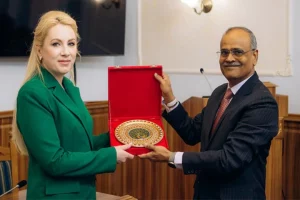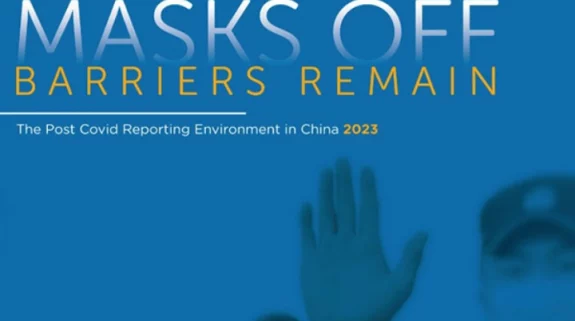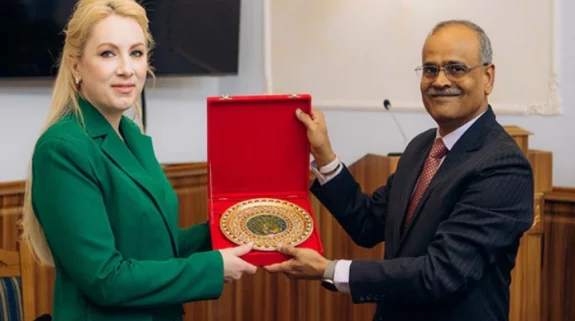The coronavirus-induced lockdown has shown to the world that nature is the ultimate boss. When humankind was locked up, animals and birds ventured forth from their confined habitats, maybe to check if all was well with humans.
Let us hope this unexpected contagion, inspired by Chinese recklessness forces humankind to retrospect about the massive environmental damage we have caused. Retrospection should also lead to planning a more responsible future—a future that is green and healthy. Plastics in oceans, pollutants in lungs, mountains of garbage in our cities and chemical-laden soil are proof that man has been derelict in his actions.
Now presents a good time to change this. What is evident also is that the two most powerful entities—governments and corporations—have let us down on environmental protection and climate change. A century of unbridled industrial leaps has allowed man to make progress and enjoy its benefits. But this has ravaged earth; it is retaliating with serious consequences.

The Indian Ocean band performs on the bank of River Yamuna in Delhi to raise awareness on climate change (Photo: Rahul Kumar)
Our abuse of the environment has also become a matter of public health concern. Where the powerful have turned their backs on responsibility, the common people have stepped in. Balancing work and life, people are doing their bit on reducing their carbon footprint—planting trees, composting garbage, reducing plastics, preserving water, even growing their own veggies and guiding others in doing the same. We profile a handful of conscientious souls amongst thousands of people who driving change at a personal level.
Meenakshi Jain, travel consultant and a resident of Vasant Kunj, Delhi, has been composting kitchen waste at home. She has been using cloth bags and buying only eco-friendly products like yoga mats, toothbrushes, and kajal. She is inspiring others in her neighborhood and beyond with her Slim Homes initiative, under which she collects used household items from people and sells these at various melas and carnivals. Funds collected through these are used in organizing environmental awareness events amongst residents.
She has organized talks on composting, waste segregation and making eco-friendly products at home. Because of the coronavirus epidemic, she has taken the initiative to make cotton masks and distributed these to marginalized people. Jain says: "The endeavor is to keep making more and more actionable changes in our lives." She got into these activities as she realized that by adopting a few things in her own life she could make a difference. Once some of these changes became a part of her, she took the initiative to bring these to the community and friends.
Satish Sharma, who runs the Blue Dolphin band with his wife, has been planting trees for many years in his neighborhood parks in Vasant Kunj. Sharma says that often his work is frowned upon by the local gardeners who feel that he is invading their turf. His zeal for planting trees led him to make a small nursery which now sustains his work of planting fruit trees in his neighborhood.
Last year, he contested the Resident Welfare Association (RWA) elections and won. Now he says he will have access to nearly 17 parks where he plans to plant more trees. What led him to these efforts? Sharma says: "I feel I am a minimalist. I use minimum water and power for my activities. I do not use ACs at all. Earlier, I used to do it out of habit but now I do it out of concern for the environment." He also feels that people are not green in their minds. "We see half-hearted efforts and inadequate number of trees. There is so much pollution everywhere as institutions are not doing enough. We are not re-generating our oxygen resources."

A sadhu walks the solitary road in the Okhla Bird Sanctuary in Noida, close to the banks of River Yamuna (Photo: Rahul Kumar)
While Meenakshi is urging people to chuck out the unwanted and unused things from their houses and Sharma is busy greening his neighborhood, we have Monika Khanna Gulati in Gurgaon who has taken her green initiatives to a bigger level.
A graphic designer, who manages her consultancy, she is a visiting faculty at a Gurgaon institute. Gulati has been composting at home and has now involved her entire neighborhood of Nirvana County. Gulati’s affair with composting began when her son won a home composter in a photography competition. The family began using it and was delighted to see the initial results. Composting became a regular habit and then Monika began talking to the RWA.
In her own words: "I began doing it eight years back. Then started a campaign in the neighborhood and tried bringing people together. I spoke with the RWA and eventually people joined in. The RWA sells the compost and people began talking about our work. Now, we have begun to work with the municipal corporation and other communities as well."
Their endeavor has shown the way to many other housing societies in Gurgaon which are implementing similar waste-management techniques. Her efforts to be more environment-friendly continue at home. Gulati is now looking at zero-waste practices, which include making bio-enzymes, soaps and re-useable sanitary pads at home. She says that as more people take up such practices at home, it will pave the way to a healthier society and cleaner environments.
We have profiled only a handful of people who began with eco-friendly activities at home. They have done so out of a personal commitment and are now creating awareness in society and becoming leaders in their own right.
Will this ripple create a wave? Only time will tell. As the coronavirus fear lingers, and lockdowns get extended, we can introspect and be the change.







